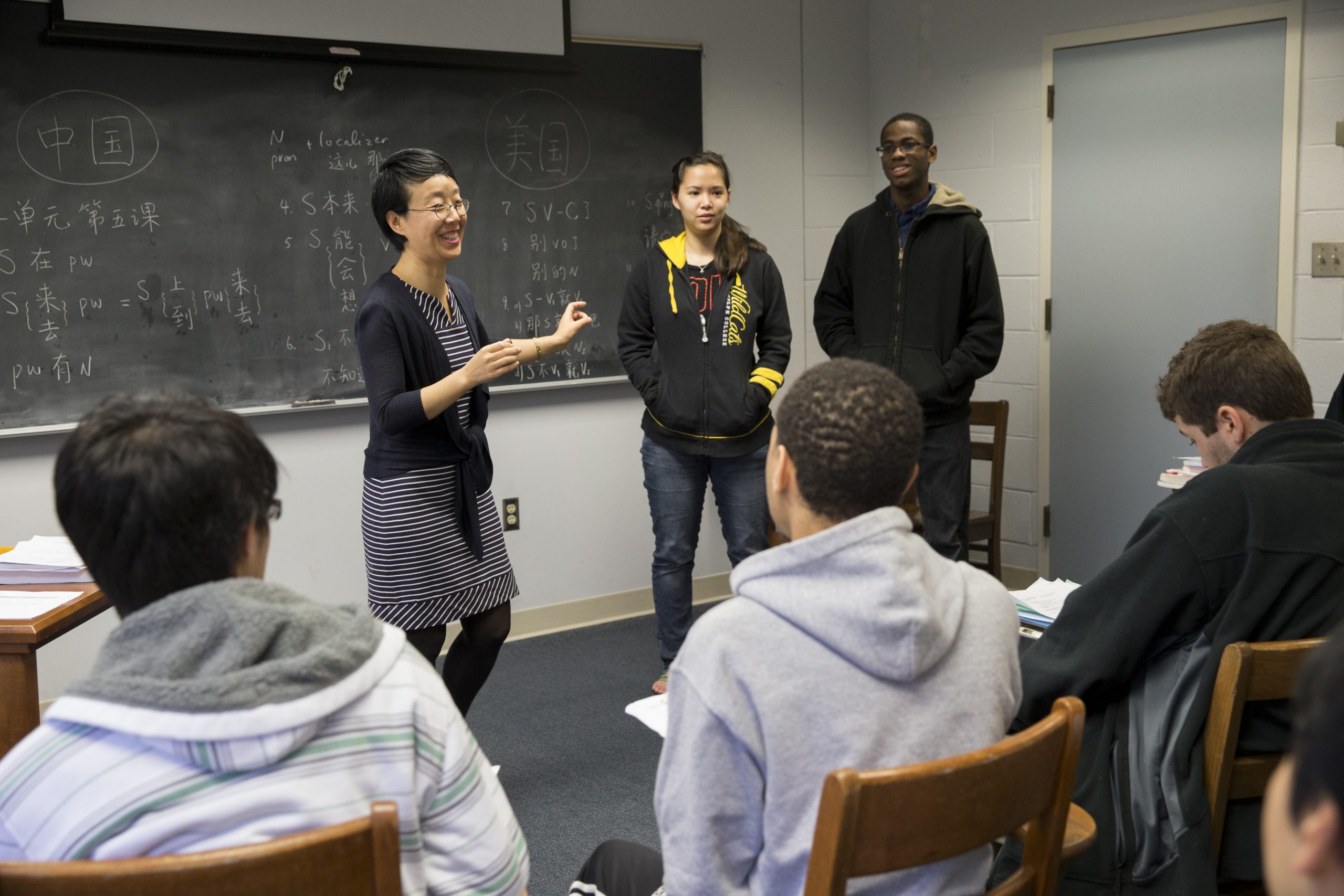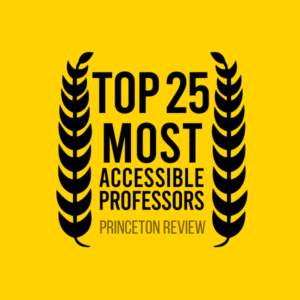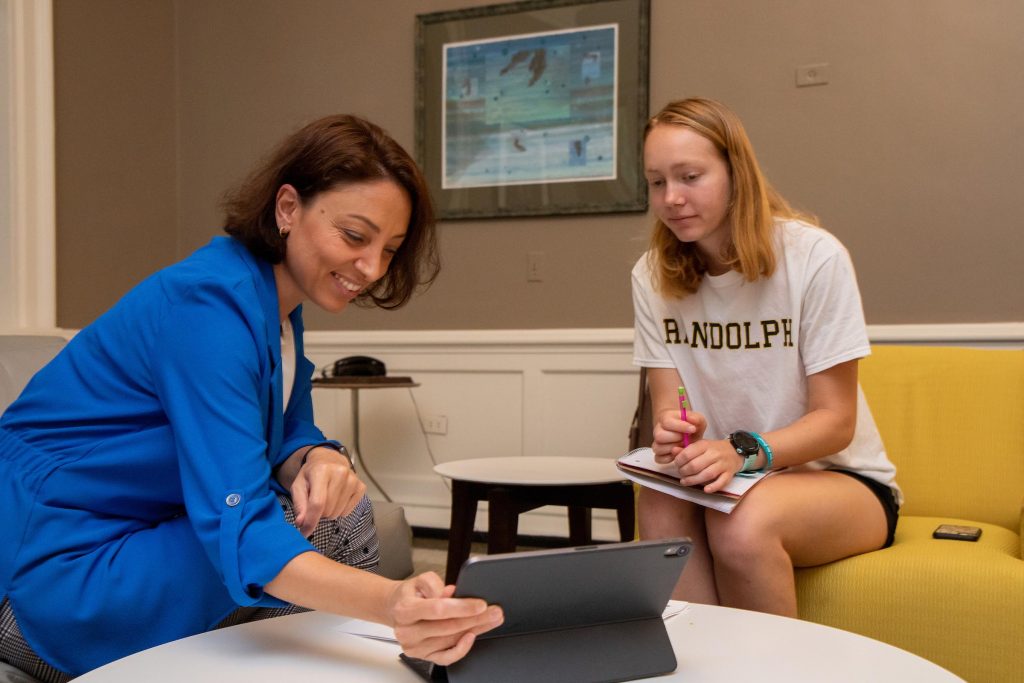Asian Studies
Randolph students can craft an Asian Studies minor that will prepare them for the ever-increasing career opportunities available to those with a grasp of the languages, contemporary affairs, and rich traditions of Asia.

Why Pursue Asian Studies at Randolph?
Randolph College offers a breadth of academic expertise, with particularly strong course offerings on the Middle East, the Indian subcontinent and the Tibetan plateau, and the east Asian cultures of China, Japan, and Korea, as well as the Asian diaspora.
With exposure to Asia’s monumental contributions to humankind in the areas of political organization, religion, art, philosophy, and technology, students can craft Asian Studies minors that will prepare them for careers in a variety of fields.
Degrees offered
Asian Studies interdisciplinary minor
Related Programs
Opportunities for Experience
Study Abroad
Spend a year or a semester studying, living, and learning abroad. Broaden your perspective while gaining the skills you need to succeed in our global society.
Randolph College has affilate agreements with two institutions in Japan:
- Kansai Gaidai University in Osaka offers classes in English.
- Tsuda College in Tokyo is for students who are fluent in Japanese.
Students can choose our other affiliates in the United Kingdom or Spain, faculty-led Study Seminar trips, special programs through academic departments, or design their own experiences.
Model UN Team
In recent years, our student delegations to the National Model United Nations (NMUN) conference in New York City have consistently been honored among the best.
Participation is selective and chosen delegates take a full credit class to prepare.
Delegates learn the structure, systems, and history of the UN with an emphasis on writing, research, speaking, and collaboration.
Intercultural Competence
All Randolph students learn global citizenship with the capability to accurately understand and adapt to cultural differences and find commonality.
Asian Studies majors must gain working knowledge of at least one Asian language and a broad understanding of the modern political history, economy, diplomacy, and societies of Asian countries—especially the two most prominent players in East Asia: China and Japan.
Summer Research Program
Spend the summer working closely with a professor on a focused aspect of an Asian Studies topic of your choosing.
Randolph’s intensive eight-week Summer Research Program enables students to work with professors on a research of their own design; live in a residence hall on campus, participate in on-campus summer events, attend special seminars with guest speakers; and share the progress and results of their research.
Symposium of Artists and Scholars
Modeled after a traditional academic conference, the SAS brings together students of all disciplines to share the results and highlights of the best work being produced at the College – oral presentations, readings of creative works, performances, exhibitions of student artwork, and poster presentations.
Internships
Learn by doing – in the field and on the job. The Career Development Center will help place you in positions with leading companies and organizations in your field of study.
Outcomes
Historic Preservation Law
Janie Campbell ’12, history major
Preservation Consultant, law firm of Rogers Lewis Jackson Mann & Quinn, LLC, Columbia, South Carolina
Janie’s group works with developers seeking tax credits for rehabilitating historic properties.
“I work closely with project architects to ensure that historic, character defining elements of each building are preserved and restored, which can vary tremendously as what is significant to a 1929 airplane hangar is vastly different from what makes a 1963 mid-century modern motel unique!”
She writes National Register of Historic Places nominations and Historic Preservation Certification applications, which detail the property’s significance. She also conducts site visits to ensure work is being completed as described and photographs the before, during, and after conditions of each project.
“Randolph certainly laid the foundation for my research and writing skills. The Summer Research Program, in particular, prepared me for the type of place-based research I do now. “

Top Ranked Professors
Randolph College’s faculty are consistently recognized as among the best in the nation. The Princeton Review ranked the College in the Top 25 for most accessible professors in the most recent edition of its flagship college guide, The Best 389 Colleges.
Randolph has been ranked in the top 25 for most accessible professors for more than a decade.
Asian Studies Faculty
Suzanne Bessenger
The Barbara Boyle Lemon ’57 and William J. Lemon Professor of Religious Studies
Read More... Suzanne BessengerMari Ishibashi
Associate Professor of Political Science, Director of Global Studies
Read More... Mari IshibashiOnly at Randolph
Randolph students can take advantage of unique programs which give them a more enriching education than can be found anywhere else.
Randolph students work with faculty mentors to explore a broad range of disciplines as they chart their academic path.
The Randolph Innovative Student Experience (RISE) program provides every student a $2,000 grant to fund research, creative work, experiential learning or other scholarly pursuits.
Two courses per half-mester means you get to focus in and dig deep into your coursework while still having time for the rest of the college experience. Two classes. Seven weeks. Repeat.
Randolph graduates learn to think critically, solve problems and work well with others. They are prepared to succeed in all aspects of life.
Department News
Students, faculty traveling to Sri Lanka for study tour
Sudesh Mantillake, who just wrapped up his time at the College's Quillian Visiting International Scholar, is leading students and faculty on study tour of Sri Lanka from May 19 to June 1.
Read MoreRandolph to host an ‘Afternoon of Korean Art Song’ in January
The trio will perform gagok, a contemporary Korean vocal art form influenced by Western music traditions.
Read MoreWilliam Olichney ’24 uses RISE grant for immersive language program in Mandarin
Memories from his summer in Taiwan come quickly to William Olichney ’24.
Read MoreRandolph professor, students traveling to Nepal for ASIANetwork-funded research
The three-week trip to Nepal is funded by an ASIANetwork Freeman Student-Faculty Fellowship.
Read MoreTibetan filmmaker Ngawang Choephel to screen film at Randolph
"Ganden: A Joyful Land," which documents the lives and memories of the last Tibetan Buddhist monks to study at the famous Ganden Monastery in Tibet, will be shown at 7 p.m. Wednesday, April 12, in Nichols Theatre.
Read MoreStudents, faculty traveling to Sri Lanka for study tour
Sudesh Mantillake, who just wrapped up his time at the College's Quillian Visiting International Scholar, is leading students and faculty on study tour of Sri Lanka from May 19 to June 1.
Read MoreRandolph to host an ‘Afternoon of Korean Art Song’ in January
The trio will perform gagok, a contemporary Korean vocal art form influenced by Western music traditions.
Read MoreWilliam Olichney ’24 uses RISE grant for immersive language program in Mandarin
Memories from his summer in Taiwan come quickly to William Olichney ’24.
Read MoreRandolph professor, students traveling to Nepal for ASIANetwork-funded research
The three-week trip to Nepal is funded by an ASIANetwork Freeman Student-Faculty Fellowship.
Read MoreTibetan filmmaker Ngawang Choephel to screen film at Randolph
"Ganden: A Joyful Land," which documents the lives and memories of the last Tibetan Buddhist monks to study at the famous Ganden Monastery in Tibet, will be shown at 7 p.m. Wednesday, April 12, in Nichols Theatre.
Read More








